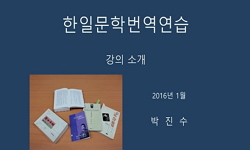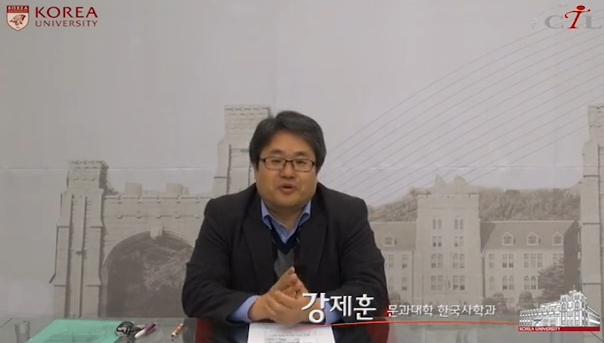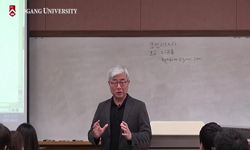본 연구는 메이지 시대 일본의 정치소설가이자 정론가였던 시바 시로오(柴四郎)의 정치소설『가인지기우(佳人之奇遇)』를 중심으로, 그 속에 들어있는 아시아 사상을 중심으로 그 모순...
http://chineseinput.net/에서 pinyin(병음)방식으로 중국어를 변환할 수 있습니다.
변환된 중국어를 복사하여 사용하시면 됩니다.
- 中文 을 입력하시려면 zhongwen을 입력하시고 space를누르시면됩니다.
- 北京 을 입력하시려면 beijing을 입력하시고 space를 누르시면 됩니다.
근대 동아시아 정치소설의 번역과정에 나타난 아시아담론의 유통과 재생산 - 柴四郎의 『佳人之奇遇』, 梁啓超의 『佳人奇遇』, 현공렴의 『가인긔우』 비교 연구
한글로보기https://www.riss.kr/link?id=G3790049
- 저자
-
발행기관
-
-
발행연도
2010년
-
작성언어
Korean
-
주제어
량 치차오 ; Shiba Shirou ; adaptation ; translation ; modern literature ; asianism ; political novel ; Gaingiu ; Hyun Gongryum ; Jiarenqiyu ; Liangqichao ; eastasia ; Kajinnokigu ; 시바 시로오 ; 현공렴 ; {가인지기우} ; {가인기우} ; {가인긔우} ; 번역 ; 정치소설 ; 조선 ; 김옥균 ; 갑신정변 ; 아시아 ; 아시아주의 ; 메이지 일본 ; 무술변법 ; 도오카이 산시 ; 청일전쟁
-
자료형태
한국연구재단(NRF)
-
0
상세조회 -
0
다운로드
부가정보
국문 초록 (Abstract)
본 연구는 메이지 시대 일본의 정치소설가이자 정론가였던 시바 시로오(柴四郎)의 정치소설『가인지기우(佳人之奇遇)』를 중심으로, 그 속에 들어있는 아시아 사상을 중심으로 그 모순성과 나아가 그것의 중국어, 한국어 번역본에서 그 모순성이 어떻게 반영되었는지를 살펴보는 것을 주요 목적으로 삼는다. 정치소설이란 메이지 시대에 나온 특정한 소설 양식으로서, 소설의 형식을 띄되 실제로는 자신의 정치적 입장을 밝히는 데 주력한 문학 양식을 말한다. 메이지 시대 초기에는 정치소설이 상당히 유행했으며, 그러한 유행은 동시대 중국과 조선에도 영향을 미쳤다.
가인지기우는 1885년부터 1897년까지 총 12년에 걸쳐 쓰여진 작품이다. 일본의 정치담론 환경으로 보면, 이 시기는 자유민권운동의 열기가 차츰 국권론으로 옮겨간 때이다. 따라서 본 연구 또한, 가인지기우에 드러난 바, 초반에서 나타난 자유민권운동의 사상이 후반부에 어떻게 국권론으로 경도되는가에 집중하고, 그 과정에서 아시아 연대의식이 어떻게 변질되는지에 주목했다.
가인지기우는 크게 두 부분으로 나뉜다. 권1에서 권10이 주인공 도오카이 산시와 아일랜드 독립지사 코렌, 스페인 독립지사 유란 간의 사랑과 연애를 노래한 재자가인(才子佳人)적 성격이 강하다. 반면, 권 11부터는 아시아에 대한 강경론에 입각한 정론적 성격이 크다. 이러한 변화가 발생하게 된 원인으로, 권 10과 권 11사이에 7년간의 공백이 있었다는 사실에 유념해야 한다. 그리고 이 공백 기간 동안 1894년의 청일전쟁이 발생했다는 것도 중요하다. 청일전쟁 이후 일본의 여론은 급격히 국권론으로 기울기 시작했고, 시바 시로오 또한 청일전쟁의 승리를 눈으로 목도하면서 과거의 자유민권론자에서 대외 강령론자으로 급선회했던 것 같다. 이 외에도 1895년의 을미사변에 시바 시로오가 간여했다는 점, 청일전쟁의 승리의 결과로 대만의 식민지를 경영하게 된 것도 물론 염두에 두어야 한다. 이를 통해, 시바 시로오는 일본의 조선 침략을 찬성하고 대만의 식민지 경영에 적극 찬동하는 입장을 갖게 된다.
이로 보건대, 가인지기우에는 중대한 양면성이 있다. 즉, 서구 열강에 대해서는 일본을 약소국으로 보고, 약소국의 자유와 독립을 강조하면서도, 아시아에 대해서만큼은 일본의 아시아 침략을 당연시하고 있는 것이다. 가인지기우의 이같은 양면성과 모순성에 대해서는, 시바 시로오 개인의 사상 이력도 관련되어 있겠지만, 더 근원적으로는 그것이 일본 ‘아시아주의’ 사상 자체가 갖고 있는 양면성 ―― 즉, 아시아연대라는 건강한 측면과 더불어 그것이 언제든 아시아 침략주의로 바뀔 수 있다는 위험성―― 과도 연동되어 있다고 보는 것이 가능하다.
본고에서는 이처럼 가인지기우 텍스트의 양면성 및 모순성을 염두에 두면서, 이처럼 초반의 ‘아시아 연대’에서 후반의 ‘아시아 침략’으로 변모해가는 텍스트 내용의 변화가 번역본에서는 어떻게 반영되는지를 고찰했다. 구체적으로는 중국의 변법유신을 주도한 량 치차오의 번역본 佳人奇遇와 한국 현공렴의 가인긔우이 이러한 부분을 어떻게 처리했는가에 주목했다.
량 치차오의 번역본에서 발견되는 흥미로운 점은, 그가 약소민족에 대한 우애와 연대를 역설하는 대목은 거의
다국어 초록 (Multilingual Abstract)
This study is focused on the Politic Novel Kajinnokigu, which was written by both famous novelist and politician Shiba Shirou in the Meiji era in Japan. In this article, I tried to analyse the contradiction Kajinnogigu reveals about its position towar...
This study is focused on the Politic Novel Kajinnokigu, which was written by both famous novelist and politician Shiba Shirou in the Meiji era in Japan. In this article, I tried to analyse the contradiction Kajinnogigu reveals about its position toward Asia and further, dig out how its Chinese and Korean translation dealt with the contradiction. Political Novel is a special genre that prevailed through Japan at that period. It looked like love story of young people but it include the writer's political position and opinion.
Kajinnogigu was written during the period from 1885 to 1897. During this period, the movement for democratic rights was being changed into the passion for national rights. Kajinnogigu also reflects this change, which I was tried to focus on. Especially, I was tried to focus on how the idea of Asia solidarity degenerated into the jingoism.
Kajinnogigu is divided into two parts. In volume 1 to 10, the main story consists of the love story among the hero Dokai Shanshi and heroins Yuran, a Spanish patriot , and Korein, a Irish patriot, Korein. To the contrary, in volume 11 to 16, it foregrounds the writer's political writing based on jingoism toward Asia. For the cause of this change, we should pay attention to the time gab of 7 years between volume 10 and 11. And, it is important that there happened Sino-China War (1894) druing this gab. After Sinno-China war burst, public opinion in Japan was rapidly leaning toward jingoism. In this background, Shiba Shiro was leaning in favour of invasion of Josun. here, a serious antinomy was found: on the one hand, Shanshi regarded Japan as one of weak nations that was under threat from Western powers and insist of their liberty and independence, on the other hand, for Asia, he take Japan's invasion of Asia for granted. This contrandiction or antinomy, it is possible to assume that it has something to do with the antinomy of Asianism of Meiji Japan.
Based on above facts, I focused on Liang Qichao's translation of Kainjigigu, Jiarenqiyu. Liang qichao is one of the most famous enlightenment thinker in modern China. What is interest of his translation is that he omitted or added the translation about Josun, China, Taiwan issues on purpose. Another thing we should take notice is that he never shed the way of thinking of sino-centrism.
In this context, we are able to find out Liang Qichao's view on Asia is full of contradiction. On the one hand, he, like Shiba Shiro, considers Asian solidarity between week countries as being important, but on the other hand, he could not get out of the old idea of tributary system. In this vein, it is possilbe to say that Josun issue is an important touchstone when we analyse the contradiction of Asianism of Shiba Shiro and Liang Qichao.











